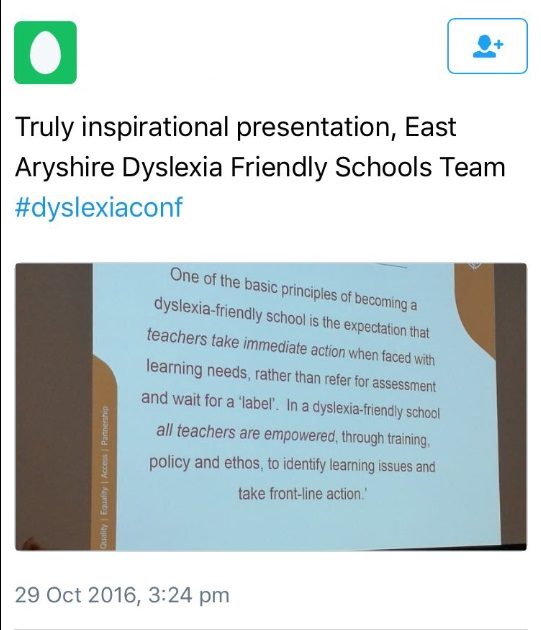A needs analysis of East Ayrshire’s Dyslexia assessment procedures identified a number of key areas for development within the assessment and intervention process; one of which was the need to develop a more reliable and robust assessment approach. Analysis found that a within-child, deficit-based model existed that failed to reflect the inherent place that teaching has in the cycle of assessment, learning and planning (BPS, 2014; Education Scotland, 2011). Furthermore, the role of the educational psychologist in the Dyslexia assessment process required a shift from individual assessment to a more consultative and systemic approach in building upon schools’ and other agencies’ assessment procedures. There was a need to redesign the assessment process with a move away from a heavy “testing” focus towards more appropriate and targeted assessment and intervention, leading to improved outcomes for children and young people. Therefore, it was proposed that a collaborative approach was adopted drawing upon experience and knowledge of EAST and Psychological Service team members. By sharing responsibility and clarifying roles in this process, capacity was hoped to be built within schools and EAST.
From 2013-2015 a multi-stranded intervention focused on three main areas: collaboration between schools, EAST and Psychological Services in developing a new literacy and dyslexia policy; increasing schools and EASTs capacity to identify and assess literacy difficulties; and building capacity within schools and EAST to embed the assessment process. This included the following actions:
- Literacy and Dyslexia Procedures redesigned by EAST and Psychological Services and a Standard Circular developed.
- Training and consultation sessions with EAST staff facilitated by Psychological Services. These sessions primarily focused on developing an ecological approach to gathering assessment information with a move towards a cyclical process of assessment, intervention and review.
- EAST and Psychological Services collaboratively disseminated the above to ASN coordinators in all primary and secondary establishments and delivered training and follow up consultations sessions to embed the assessment process using a case study approach.
- EAST and Psychological Services collaboratively trained class teachers during half-day in-service sessions, north and south of the authority.
- EAST and Psychological Services supported schools in developing Dyslexia Friendly Schools, to build upon existing knowledge of dyslexia and link this back to the new assessment process.
From 2015, EAST and Psychological Services carried out an evaluation of the literacy/assessment process to try to ascertain how embedded the process was, focusing primarily on the primary sector in the first instance. This evaluation clearly evidenced that progress had been made. However, it also highlighted that we needed to support our education colleagues in effectively applying the assessment process for all ASN issues. Following on from this, we provided additional training sessions to our primary colleagues and new EAST staff to support this wider focus of the assessment process.



You must be logged in to post a comment.